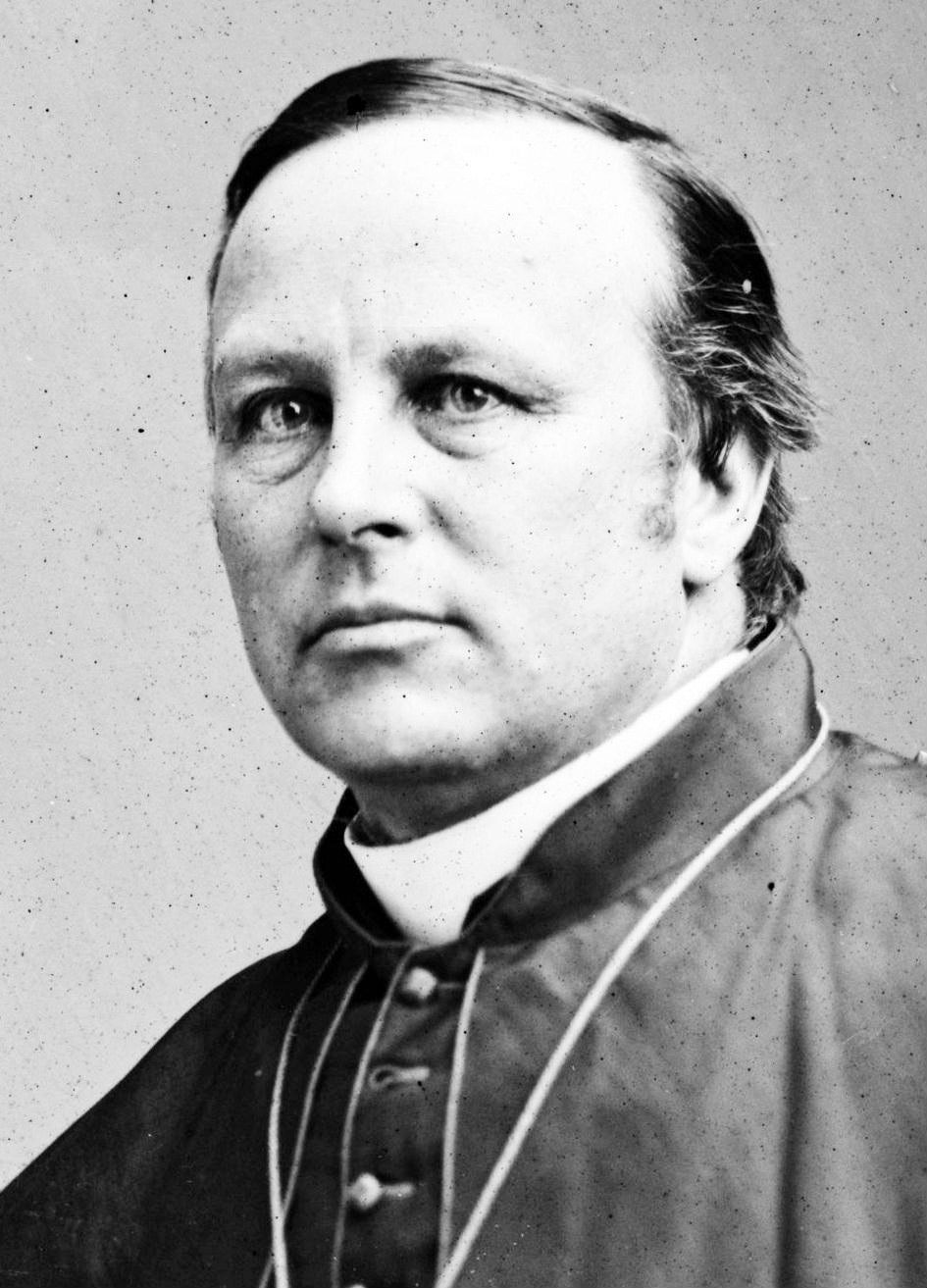The Year is…1877
The Archbishop Who Was Buried in Emmitsburg
by James Rada, Jr.

To those who knew Archbishop of Baltimore James Roosevelt Bayley, it didn’t come as a great surprise when he died on October 3. He had been in ill health for months. It was said he died from liver and kidney problems.
What was a surprise is where the current Archbishop of Baltimore and former Archbishop of Newark, Del., chose to be buried.
“By request of his Grace, the most Rev. Archbishop of Baltimore, James Roosevelt Bayley, the Sisters of Charity of St. Josephs convent had prepared in the vault in the memorial Chapel erected over the remains of Mother Seton (sic) the Foundress of the order in the United States, a final resting place for all that was mortal of the distinguished divine,” the Catoctin Clarion reported.
Bayley wanted to be buried with Elizabeth Ann Seton because she was his aunt. His father, Dr. Richard Bayley, was Seton’s brother.
Bayley had originally been ordained a minister in the Episcopal Church and preached in Harlem and Hagerstown. However, like his aunt, Bayley converted to Catholicism. He was baptized in Rome and trained for the priesthood in Paris before being ordained in New York on March 2, 1842. Upon doing so, he gave up his family fortune because his maternal grandfather removed him from his will.
He taught at St. John’s College in Fordham, New Jersey, and served as the college president from 1845-1846. From 1846-1853, he worked as a secretary for Archbishop John Hughes, who had ordained him a priest.
On October 30, 1853, he became the first bishop of Newark, New Jersey, which “under his administration became one of the most prosperous in the United States,” according to the Richmond Daily Dispatch. The diocese comprised all of New Jersey. He had more than 40,000 Catholics, mainly of Irish and German extraction, with only 25 priests to minister to them. He founded Seton Hall College in Madison, New Jersey, as well as other schools, convents, and churches.
He became the Archbishop of Baltimore on July 31, 1872.
After a funeral Mass in Baltimore on October 9, Bayley’s casket was loaded onto a Western Maryland Railroad train at 2:00 p.m., and then onto the Emmitsburg Railroad train in Rocky Ridge. It arrived at the station in front of St. Joseph’s College at 4:20 p.m.
“Outside the depot building on the broad avenue leading to the institution, the Sisters of Charity and pupils of the school formed in line, on the south pavement. Opposite on the north pavement were the Professors and students of Mt. St. Mary’s,” the Clarion reported.
A seminarian with the cross and censer led the funeral procession from the train, which included friends, family, and Cardinal John McCloskey.
“The scene was one never to be forgotten, the Revs., Clergy in vestments of their several orders, the Seminarians with black cassocks and white surplices, with Sisters of Charity in their flowing white cornets, the pupils of St. Joseph’s in long white veils, the beautiful cemetery of the Sisters radient (sic) with the bloom of autumn flowers, the soft misty haze of an October sunset combined to make a picture rarely to be seen,” according to the Clarion.
They entered the cemetery and proceeded to the chapel behind the old White House, where Mother Elizabeth Ann Seton had lived more than a half century ago. The chapel was in a grove surrounded by oak trees.
“As you enter the chapel to the right of the altar, a Tablet with the proper inscription indicates the spot where all that is mortal life of the venerated Foundress. To the left, another table to mark the spot of her illustrious nephew,” the newspaper reported.
Cardinal McCloskey pronounced the last absolution, and the coffin was lowered into the ground.
Afterward, the crowd moved to the St. Joseph’s exhibition hall for a reception until the train whistle blew at 6:00 p.m. The group from Baltimore then headed back to the station to be aboard the train by the time it left for Baltimore at 6:30 p.m. Archbishop of Baltimore James Roosevelt Bayley

